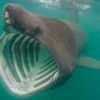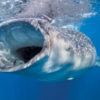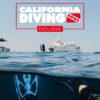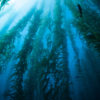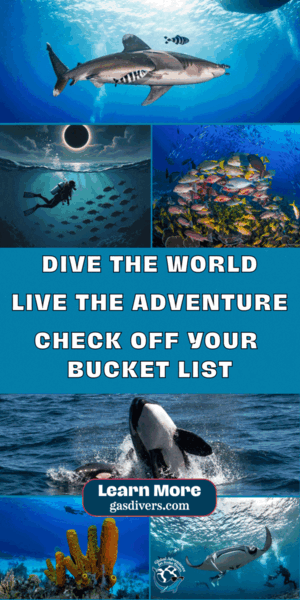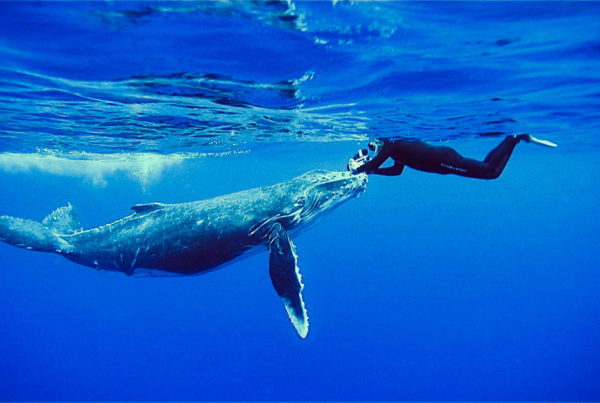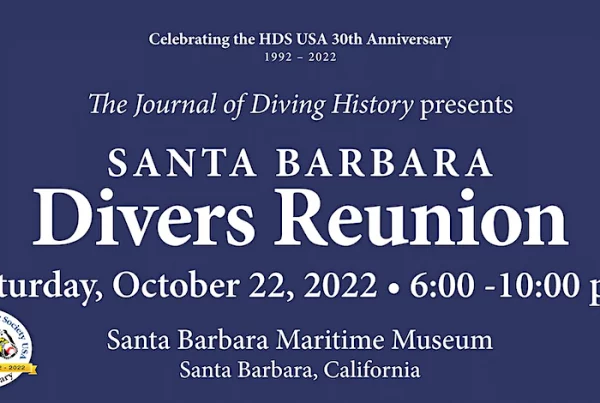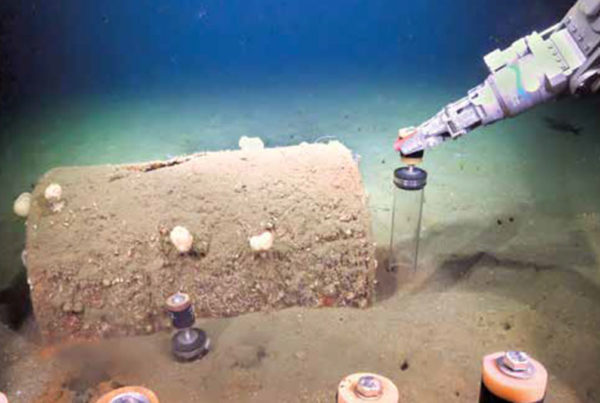A dentist is a doctor the same as psychiatrists and proctologists are doctors. But these doctors have vastly different areas of expertise. There are times when our healthcare needs can be met with a visit to our “family doctor,” a general practitioner who specializes in providing comprehensive health care. And then there are times when we might need to consult with a specialist. For us divers, this might include a consultation with or examination by a diving physician — one who is trained in undersea and hyperbaric medicine.
Situations that might require the expertise of a “diving doc” can include:
- Upon returning from a boat charter to one of the Channel Islands, you begin to experience symptoms associated with decompression illness.
- Last year you were in a car accident and sustained internal injuries, including a partially collapsed lung. You have recovered and want to resume diving, but your family physician has advised that you see a diving specialist first.
- You experienced some spatial disorientation and went to see your primary doctor. You get a clean bill of health, but when you ask about being “cleared to dive,” he or she says they can’t advise you on diving issues.
- You have been an active diver all your entire adult life, and you have never experienced a condition that might prevent you from diving. But you just celebrated your 50th birthday. You know 50 is the new 35, but you wonder if it is wise to continue to dive as you have in the past.
These scenarios are well within the scope of real life. In fact, the spatial disorientation scenario happened to me. The good news is we divers have some remarkable medical resources available to us. In this article we’ll overview the Divers Alert Network (DAN) and take a closer look at the Diving Medicine Clinic at the University of California, San Diego.
Divers Alert Network
According to their website, diversalertnetwork.org, DAN is “the diving industry’s largest association dedicated to scuba diving safety. Serving scuba divers for more than 30 years, DAN provides emergency assistance, medical information resources, educational opportunities, and more. One of DAN’s best-known resources is the 24-hour DAN Emergency Hotline, which stands ready every hour of the day to help scuba divers in need. DAN also offers a number of non-emergency resources as well, including the DAN Information Line, medical FAQs, online seminars and video lectures, real-time webinars, and more.”
In the first scenario described above, when a diver is reporting symptoms possibly associated with decompression illness, call the DAN Emergency Hotline. That phone number is (919) 684-9111. Calls to this hotline are answered by the DAN Medical Staff, 24 hours a day, 365 days a year. The person taking the call will be a Dive Medical Technician, and might be an EMT, paramedic or physician. If the person is not a physician and one is needed immediately, they will put you in touch with a diving physician who is on call. Depending on what the physician feels is best, that person might help you get connected with local emergency medical personnel.
You should know the following: DAN markets memberships and accident insurance. But neither the victim nor the caller is required to be a DAN member to receive help when a call is made to the emergency number. The DAN staff offers the same quality of emergency and medical help to anyone that calls, whether the individual is a DAN member or not. You can learn more about DAN membership and Dive Accident Insurance by visiting their website.
The Diving Medicine Clinic at the University of California, San Diego
For any diver that lives in the western United States, especially those of us that live within a few hours drive, or a short flight, to San Diego, my single answer to all of the “who should you call or see questions” posed in scenarios two, three and four is to make an appointment to see a Diving Medicine Physician at the Diving Medicine Clinic (Dive Clinic) that is part of the UCSD Hyperbaric Medicine Center. All the physicians at the Dive Clinic are Board Certified in Undersea and Hyperbaric Medicine. The clinic is a great place for any diver to go to get a thorough diving physical and to address any specific diving-related concerns.
If you are anything like me, when you hear of a specialty clinic at a large hospital in a major metropolitan area, you think that an appointment will likely cost you a proverbial “arm and a leg.” Not true. Currently, a complete diving physical at the UCSD Dive Clinic costs $77 to be paid at the time of service. (If additional testing is necessary, you can expect to pay more, so be sure to ask about extra fees.)
My comprehensive exam lasted four hours, so there is no question that I got my money’s worth. During my exam the physicians at UCSD spoke with other DAN doctors across the country to receive additional input.
Interested In A Diving Physical?
The staff at the Dive Clinic provides complete diving physicals every Wednesday morning to eight divers approximately 48 weeks out of the year. The clinic only started offering this service two years ago, and its popularity has grown. Early on, most divers that took advantage of the physicals were some type of commercial or professional divers, but the service is rapidly gaining popularity within the sport diving community as almost 400 people received diving physicals there last year.
To make an appointment to see a Diving Medicine Physician for a physical or any other reason, call 619-543-5222 during normal business hours.
UCSD also provides help for diving emergencies and through the Dive Clinic has a doctor on call 24/7 every day of the year. That physician serves as part of DAN’s emergency response team, and can be reached by calling the UCSD paging operator at (619) 543-6222. Let the operator know you are calling about a diving related emergency.
In the San Diego area, if you or another diver needs or requests immediate assistance you will be probably be advised to go to the emergency room or the hyperbaric chamber where an on call diving physician will meet you and provide their services.
On a Personal Note
The Director of the Dive Medicine Clinic, Dr. Van Hoesen, told me that while she has extensive training in other areas of medicine, the professional “love of her life” is diving medicine. With a sheepish grin on her face, she further stated that her problem is “not enough divers experience incidents or injuries for her to make a living.” She was quick to point out that she did not mean that she wishes that more divers experienced problems. She was making the noteworthy point that diving is a very safe sport.
She was also quick to point out that just because diving is “safe” doesn’t mean that there are no incidents that require the help of medical personnel specifically trained in diving-related injuries and issues. As a matter of fact the UCSD hyperbaric chamber has helped treat 638 divers since 1984, and treats roughly 30 to 40 divers a year.
I suppose there are two ways to look at the number of divers that receive physicals and chamber treatment. The numbers are not that high compared to many other forms of injuries and treatments, but when you are one of those divers that needs assistance you sure are glad you have a specialist that understands diving to turn to.
I know. When I went to the Dive Clinic the doctors I had seen prior to that were not trained in diving medicine, and they were completely unaware of the potential problems a patient with my diving background might experience. As a result their diagnosis was not even close to what the doctors at the clinic concluded in my case. I went from the likely loss of my driver’s license and being warned to discontinue diving altogether, to a remedy that allows me to continue driving my car and diving as usual. That’s a pretty big difference.
Though personal experience I truly know how meaningful it can be to seek the expertise of doctors who are trained in diving medicine. I received help through the UCSD team in conjunction with the physicians at DAN. If I had not, my diving career might be over. One way I am trying to thank all of the people at the UCSD Diving Medicine Clinic and at DAN for what they have done for me is by spreading the word about them to the greater diving community. The UCSD Diving Medicine Clinic is a wonderful resource for all divers.



